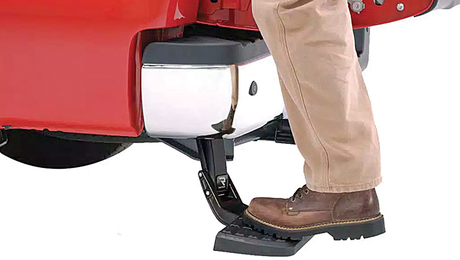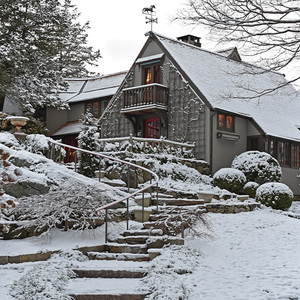I am a Michigan GC with a small crew that can go to the devastation for 6 to 12 months
how do I find the insurance dollars in the south?
I am licensed in Michigan and have an comprehensive Insurance plan. do I need a recricipal license?
the news said 1,000,000,000.00 + in damage, I need the work how can i cash in?















Replies
Contact a existing contractor in the area and see if you can work under their license. You would become part of their organization so the profits will likely be lower, also the wages are lower in the south, and you will have to work under the contractors direction. Probably a good thing as the building codes in coastal areas are likely different from what your used to.
So, at least for the first few jobs, you might not even qualify as a lead man. No matter how much experience you have. As you learn the local methods and materials you would get more credit and freedom but still you would be operating under someone else's license, WC, insurance and guidance.
If this setup still interests you then give it a try. If your out for a quick windfall profit stay home.
Florida is not a good state to travel to for work.There were still MANY roofs unfinished from last years Hurricane season.Here is the problem - Florida is very strict regarding licensing, and their license process does not go quickly.Well over 600 jobs were shut down in a 2 or 3 month period in central Florida last winter due to unlicensed contractor status.In addition, unless you can get the GC "state" license (which takes a long time to get), you will only be able to do the tasks for which you have been licensed. Carpenters may not do roofing, roofers can't do carpentry, carpenters can't install tyvek or install windows etc.and lets not forget the abysmal wages in Florida.You noted in your post that you "need the work." Florida is probably not the place for you - unless you already know licensed GC down there.There are guys that "rent" their licenses down there, but they don't do it cheap.
Re: "There are guys that "rent" their licenses down there, but they don't do it cheap."I wouldn't advocate 'renting' a license and then working on your own. Such paper arrangements can get everyone in hot water. And the inspectors can usually spot crews working this way. On the other hand if you are legitimately working under a contractor, with his insurance, WC, license and supervision you should be OK. Many contractors hire extra crews during the high season or as the situation demands. This is expected and, as long as the WC and insurance is covered, is considered OK. Some shops can double or triple in size depending on the season. If one or more of the crews was from out of state I don't think the inspectors would have any problems with it as long as the other requirements were covered.
Re: "There are guys that "rent" their licenses down there, but they don't do it cheap."""I wouldn't advocate 'renting' a license and then working on your own. Such paper arrangements can get everyone in hot water. And the inspectors can usually spot crews working this way.""I'm not sure where in Florida you are 4lorn... but where I was, the system was absolutely rampant with guys bucking the system.One guy would have a license, and then let 2 others be part of his "corporation" so that they were comp exempt. In my short time down there, I personally saw many guys who used their license to run several jobs for several different crews without licenses. The crews would use a payroll service to cover comp and insurance. They do this day in and day out - and the inspectors don't say a thing. The inspectors are there to enforce code, not police licensing violations.A lot of the industry seemed pretty shady down there.
Your right some 'rent their licenses' without controlling the jobs. The result is often little or no accountability and so loose or no standards. IMHO there are too many loopholes in the law. Florida did away with journeyman licensing so there is no requirement that anyone on a site actually know anything or have any training.Inspectors only catch the worse of the structural and functional problems. There is little guarantee, beyond the contractors good name, that the roof they put on won't leak. And a lot of the older contractors spend the last couple of years cashing in on their name. By the time word gets out they have no standards they are retired.The system is slanted toward keeping labor prices low and builders happy. It is often far too easy to exploit such systems. Also true the inspectors are not, for the most part, there to control licensing issues. Most times they try to the builders get on the line to the mayor and complain so even those few actual requirements that are in place don't get enforced.Locally they try to. At least around the edges. Mostly they only come down hard on the worse and most dangerous cases.That said there are some really good contractors out there. Ones who can increase the number of crews they run and keep the supervision, standards and quality high. To me this is the way to go. Some inspectors see it similarly.Maybe, if enough house fall apart, burn down, or people die the licensing and training issues will be addressed. Be another six months or a year after the hurricane for the engineers to analyse why so many houses disintegrated. I expect that they are going to find what they did in Florida after Andrew. A lot of shoddy construction. Maybe codes and licensing requirements will firm up and be enforced. Don't count on it.IMHO the story that people would get more and better help if only the local and state governments would let people do whatever they want is mostly BS. Legitimate contractors and well meaning tradesmen were able to get in and help within the limits of the materials, money and/or an insurance settlement. From what I saw for every case where rebuilding was alleged to have held up by regulation there was at least one well documented case of locals getting ripped off by out of state, bottom feeding, tradesmen.
Actually while Florida is very strict alot of states have very little regulation. I know in Al you don't need a state license to do smaller (used to be anything under 20k iirc) residentual work. You do need to contact each city/county where you want to work and find out their business license, insurance, and permit requirements. I'm pretty sure Ga and Ms are the same, no idea about the other states though.